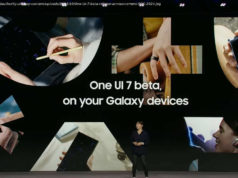App developers have always dreaded Android’s fragmented device ecosystem because of the burden of supporting multiple device types and sizes, which often means generating and managing multiple APKs for those different types. To lift the weight off developers shoulders while maintaining Android’s rich diversity, Google
App developers have always dreaded Android’s fragmented device ecosystem because of the burden of supporting multiple device types and sizes, which often means generating and managing multiple APKs for those different types. To lift the weight off developers shoulders while maintaining Android’s rich diversity, Google is introducing the App Bundle format that will make apps look lighter and install faster, benefiting both developers and users on both ends of the pipeline.
Developers still have to explicitly support multiple devices. That is, they still have to create assets for different screen sizes and mind code for different hardware architectures. What the Android App Bundle does is to practically move the generation of multiple APKs out of developers’ hands and into Google Play, removing one point of worry and stress in the development workflow.
That’s just one part of the story, though. Taking advantage of the fact that it will be the one generating the APK, Google Play is now able to offer Dynamic Delivery when serving apps. This means that the APKs that users will download have been optimized for their specific device and doesn’t include resources or compiled code not relevant to their device. They will see a smaller app size and see shorter installation times as well.
It doesn’t stop there either. App Bundles also allow for Dynamic Feature Modules allow for an even more granular delivery of features. Users will have to only download the core of the app and only download additional features when they need it.
These features won’t be applied by magic and developers have to take care nothing breaks when using those dynamic features. And if it weren’t obvious yet, Android App Bundle is only available when you use the Google Play console, which means binding yourself even deeper into Google’s proprietary service.






